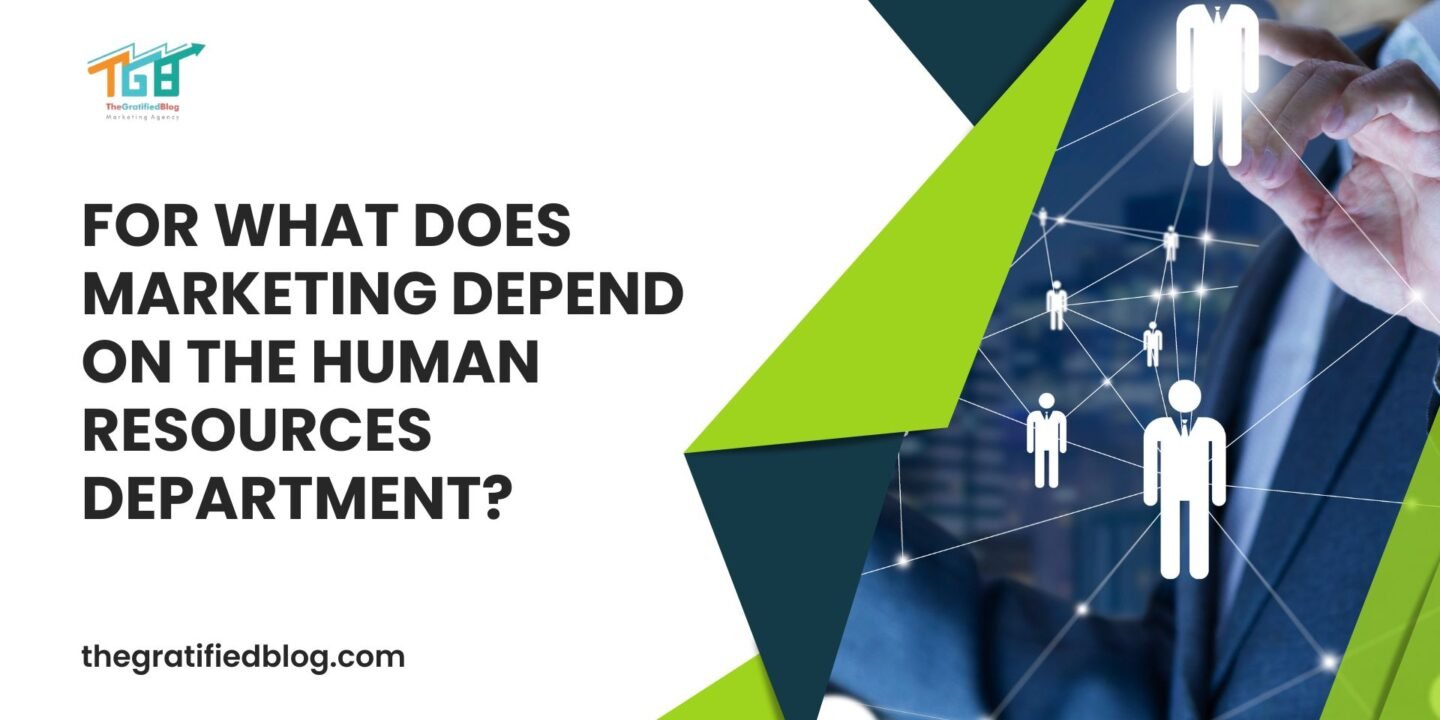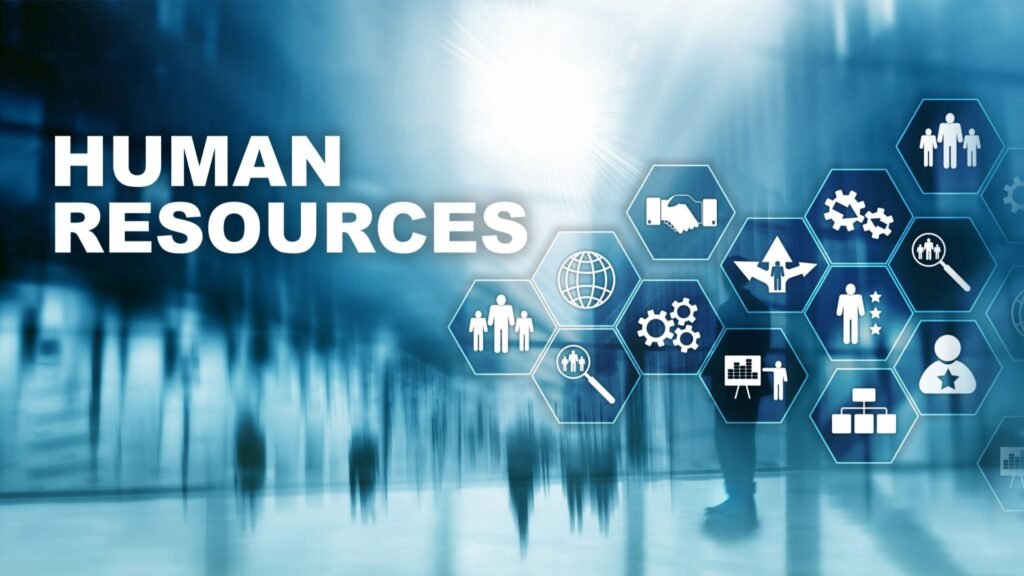
In the intricate web of a company’s organizational structure, every department plays a crucial role in the overall success and growth of the business. While marketing is often associated with creativity, strategy, and communication, it might seem like an independent entity within the company. However, the relationship between marketing and the Human Resources (HR) department is deeper and more intertwined than one might initially think. The success of marketing initiatives often depends significantly on the support and collaboration of HR. Let’s delve into this post, “For what does marketing depend on the human resources department?” and understand why this relationship is crucial and what marketing depends on the HR department for.
Overview Of The Marketing And Human Resources Departments

The Marketing and Human Resources Departments serve distinct yet interconnected organizational functions. Marketing focuses on promoting products or services to target audiences, employing strategies to enhance brand visibility and drive sales. Human Resources manages employee recruitment, training, and development, fostering a productive and supportive work environment.
Despite their differences, both departments share a common goal of organizational success. Collaboration between Marketing and HR ensures alignment of brand messaging with internal culture, facilitating employee engagement and retention. This overview highlights the complementary nature of these departments and emphasizes the importance of cohesive integration for achieving overarching business objectives.
Understanding Marketing
Marketing is the strategic process of promoting products or services to targeted audiences to achieve business objectives. It encompasses various activities such as market research, advertising, brand marketing, and sales. Effective marketing involves understanding consumer needs, analyzing market trends, and developing tailored strategies to reach and engage potential customers.
Through compelling messaging and creative campaigns, marketers aim to generate awareness, drive demand, and, ultimately, increase sales and revenue. In today’s digital age, marketing often leverages online platforms, social media, and data analytics to optimize reach and ROI. Successful marketing initiatives attract customers and build brand loyalty and long-term relationships.
Exploring Human Resources Departments
The Human Resources Department serves as the backbone of an organization, overseeing recruitment, employee relations, training, and development. Its primary functions include talent acquisition, onboarding, managing employee benefits, and ensuring legal compliance. HR fosters a positive work environment by handling conflicts, promoting diversity and inclusion, and implementing employee wellness programs.
It plays a crucial role in organizational culture by aligning employee goals with company objectives and facilitating professional growth through performance evaluations and training initiatives. Ultimately, the HR department serves as a strategic partner to management, ensuring the well-being and productivity of the workforce while contributing to the organization’s overall success.
Importance Of Integration Between Marketing And HR
Integrating Marketing and Human Resources (HR) departments is crucial for organizational success. By aligning marketing strategies with HR practices, companies can ensure consistency in messaging and brand representation, both internally and externally. HR can provide valuable insights into employee needs and preferences, which can inform marketing campaigns and employer branding efforts.
Similarly, marketing can support HR in attracting top talent by effectively communicating the company’s culture and values. This integration fosters a cohesive workplace environment, enhances employee engagement, and ultimately contributes to achieving business objectives while reinforcing a positive brand image.
For What Does Marketing Depend On The Human Resources Department?
The human resources (HR) department plays a crucial role in supporting marketing efforts within an organization in several ways:
- Talent Acquisition: HR recruits and hires employees, including marketing professionals. They work closely with marketing leaders to understand the specific skills and qualifications needed for marketing roles and ensure that the right talent is on board.
- Training and Development: HR develops training programs to enhance the skills and knowledge of marketing personnel. They collaborate with marketing managers to identify areas where training is needed, such as digital marketing techniques, direct marketing, market research methodologies, or customer relationship management.
- Employee Engagement: Engaged employees are more likely to be productive and contribute positively to marketing initiatives. HR implements strategies to boost employee morale, foster a positive work environment, and encourage teamwork, which is vital for effective marketing campaigns.
- Performance Management: HR oversees performance appraisal processes, providing feedback and setting goals for marketing employees. By evaluating individual and team performance, HR helps ensure that marketing efforts align with organizational objectives and make necessary adjustments to optimize results.
- Compensation and Rewards: HR manages compensation structures and rewards programs for marketing personnel. They ensure that salaries and incentives are competitive to attract and retain top marketing talent and motivate employees to achieve marketing goals.
- Compliance and Legal Issues: Marketing activities must comply with various laws and regulations, such as data protection and advertising standards. HR works alongside marketing teams to ensure that campaigns adhere to legal requirements and ethical standards, mitigating the risk of legal issues or reputational damage.
- Cultural Alignment: HR shapes the organizational culture, which can significantly impact marketing efforts. They promote values and behaviors that support marketing objectives, such as customer-centricity, innovation, and collaboration.
Collaboration Between HR And Marketing For Successful Campaigns
Collaboration between the Human Resources (HR) and marketing departments is vital for successful campaigns. HR is crucial in recruiting and retaining top talent with the skills and mindset needed for innovative marketing strategies. By understanding the marketing team’s specific needs and goals, HR can tailor recruitment processes to attract candidates who align with the company’s marketing objectives.
Furthermore, HR can work closely with the marketing department to provide ongoing support, feedback, and resources to ensure that marketing campaigns are executed seamlessly. This collaboration fosters a cohesive and dynamic work environment where creativity and strategic thinking thrive, ultimately leading to the success of marketing initiatives.
Conclusion
In conclusion, The symbiotic relationship between HR and marketing is a key determinant of organizational success. Aligning recruitment efforts with marketing objectives ensures a talented workforce capable of executing innovative strategies. By fostering a collaborative environment, HR can provide vital support and resources to the marketing team, enhancing campaign effectiveness.
This partnership creates a dynamic work atmosphere where creativity flourishes, driving the accomplishment of marketing initiatives. Understanding the integral role of HR in shaping the marketing landscape underscores the significance of an interconnected approach within the organization. In conclusion, the collaboration between HR and marketing emphasizes the importance of synergy and collective effort in achieving sustainable marketing success.








No Comments